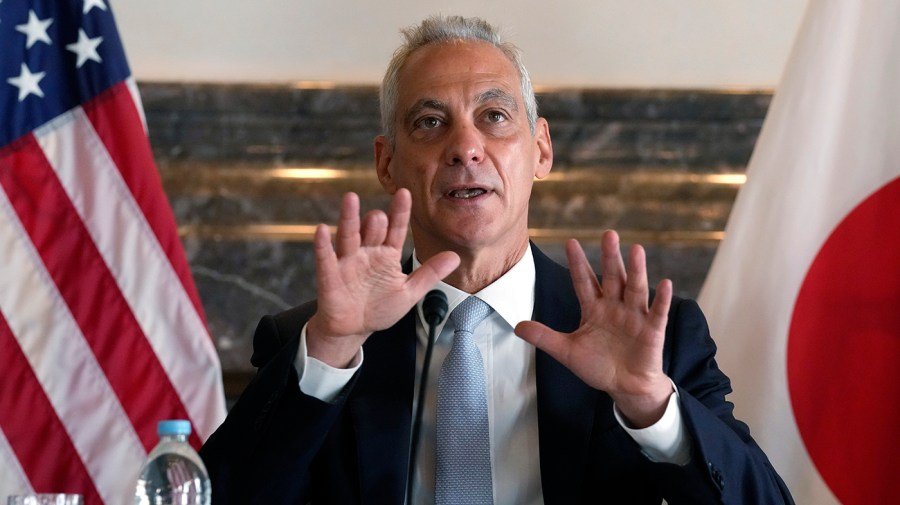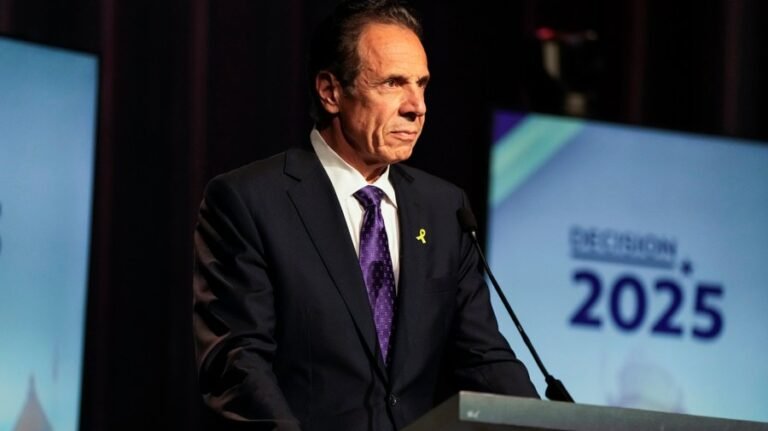
San Francisco’s public high schools recently tried to implement a massive change to their grading system— part of a “grading for equity” program under which students can pass with scores as low as 41 percent. Moreover, homework, attendance and classroom participation would no longer factor into students’ grades, which would instead depend mainly on a final exam — which, of course, they could retake multiple times if needed.
Understandably, parents were outraged, in particular because this absurd system has been adopted by other cities and has failed to improve performance. After receiving “significant backlash,” the plan was canceled.
What a shock.
Our public schools are in trouble, and even Democrats are noticing. Politico reports that Rahm Emanuel, former congressman, chief of staff to President Obama, Chicago mayor and ambassador to Japan, wants to run for president in 2028 on a platform of education reform.
Emanuel has reportedly been “road testing the outlines of a stump speech,” and it’s a good one. He recently said in an interview, “I am done with the discussion of locker rooms, I am done with the discussion of bathrooms and we better start having a conversation about the classroom.” Later, Emanuel told Bill Maher, “We literally are a superpower, we’re facing off against China with 1.4 billion people and two-thirds of our children can’t read eighth grade level.”
The feisty former mayor is stealing a powerful issue from the Republican playbook. It’s a gutsy move.
Attacking our education establishment, and especially calling out the teachers’ unions, has long been the third rail of Democratic politics. The National Education Association and the American Federation of Teachers are, to lefty politicians, the most sacred of sacred cows. Not only do those two organizations claim enormous membership rolls — the NEA has 3 million members and the AFT has 1.8 million — that can help get out the vote and mobilize the public, they also spend tens of millions of dollars for political candidates, with more than 90 percent going to Democrats.
For proof, look at the 2023 mayoral race in Chicago, during which both the disgraceful shortcomings of the city’s schools and rampant crime were on the ballot.
Paul Vallas, a tough-on-crime Democrat known as an accomplished school reformer, faced off against another Democrat, Brandon Johnson, a former teacher and labor organizer who was the favorite of the Chicago Teachers Union and its nearly 30,000 members. The race should not have been close. Vallas had a track record of success and the backing of the police. But he lost to Johnson anyway, who received over $5 million from CTU and other teachers’ unions.
From 2011 to 2019, Emanuel served as mayor of the Windy City. During those years he attempted school reform and took on the teachers’ unions. The sparring resulted in the strike of 2012, which unions today celebrate because they won significant concessions, such as higher pay and reduced accountability.
That strike also squashed the budding reform movement that had led to some school closings and efforts to set higher standards. It is credited with paving the way for similar walkouts in Los Angeles, Oakland, and Denver in the years that followed. The CTU calls the 2012 work stoppage “The strike that brought teachers unions back from the dead.”
All of this makes Emanuel a peculiar person to talk up school reform.
That’s not to say he isn’t right in calling out the failures of our public education. In his home city, testing from last year showed that fewer than one in three students could read and fewer than one in five could do math at their elementary grade level. Among Chicago’s 11th graders, only 22.4 percent could read at grade level in 2024, and only 18.6 percent performed math proficiently. This is unacceptable.
Nationally, the news is grim as well. The most recent assessments from the Program for International Student Assessment tests 15-year-olds in over 65 countries; the U.S. places 18th overall, with an overall score of 1468, well below leader Singapore’s 1679 and runner-up China’s 1605. In math, the U.S. comes in 26th. The Chamber of Commerce Foundation reports that students in Singapore “scored 110 points more than their American peers [in math] — five staggering academic years ahead of U.S. students.” As they point out, “These results have huge implications for the United States’ global competitiveness and national security.”
Our country’s education system is not short of money; U.S. public schools are spending over $17,000 per student on K-12 education. In 2019, our outlays per pupil were 38 percent above the level of other OECD countries. Something is wrong with this picture, and America’s parents know it.
We should care not only about national security and U.S. competitiveness, of course; we should also care about the kids — mostly non-white kids — who fall through the cracks of our broken schools every year and whose fates are often sealed by that failure.
Recent state exams reveal that in 40 percent of Baltimore’s high schools, not a single student was proficient in math. In Chicago, there are 22 schools where not a single student can read at grade level.
How can local politicians — nearly all Democrats, who routinely ask for minority votes — accept that?
Tackling the teachers’ unions, imposing high standards, discipline and innovation — like using AI and other new technologies to augment in-class teaching — is part of the answer. Pushing school choice, which introduces competition into our sclerotic and underachieving system, is essential. President Trump and Republicans are on the right side of these issues, and must prioritize reforms.
Emanuel is right to challenge the teachers’ unions, and our failing schools. But his record shows he’s not the guy to get the job done.
Liz Peek is a former partner of major bracket Wall Street firm Wertheim and Company.


